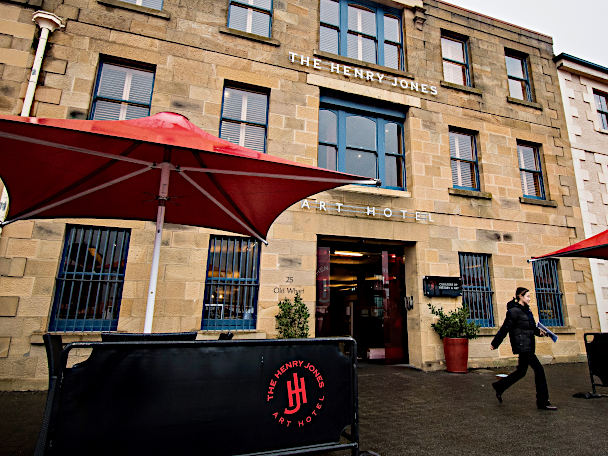Comment: The $22,000 ‘Aird loophole’ lives on as Tasmania baulks at donations transparency

The eleven guests who ponied up for a $2000-per-head dinner at the up-market Henry Jones Art Hotel on Hobart’s waterfront were there for a cause: to raise funds for the 2009 Legislative Council re-election campaign of then state treasurer Mike Aird.
It was a fundraising dinner that illustrated how loopholes in Tasmania’s electoral law could be exploited, leaving the public in the dark about who was funding the election campaigns of high-profile candidates.
Over a decade later, Premier Peter Gutwein has indicated he has no intention of removing the loophole.
Indeed, it could actually be embedded in proposed changes supposed to regulate the disclosure of political donations to local government candidates.
Many of the guests attending Aird’s fundraiser still remain significant players in Tasmanian politics.
Those attending the January 2008 event included Federal Group chief Greg Farrell and its then in-house lobbyist Brendan Blomley, and the head of the Tasmanian branch of the Australian Hotels Association, Steve Old. (Blomeley is now a Clarence councillor and active member of the Liberal Party.)
Others attending the event included property developers Robert Rockefeller, Peter Behrakis and George Giameo.
Nine months after the dinner, details of the event began to trickle out, with speculation first published on the Tasmanian Times website. The issue was soon taken up by other media outlets and opposition parties.
At first, Aird defended the dinner but refused to disclose who the paying guests had been, or whether the Federal Group had provided its venue for free.
“People who attend a dinner don't have any greater or lesser influence on my decision making or my policy making or the government's policy making than anyone else from any walk of life,” he said.
As the controversy grew, Aird divulged the names of the eleven paying guests.
But that wasn’t the end of the matter.
Under the Electoral Act, a cap is set on expenditure between January 1 and polling day in May. For Aird’s 2009 campaign, the expenditure cap was set at $12,000. (This year it was $18,000.)
But, as Aird had raised $22,000 from the dinner, the question was what he intended to do with the other $10,000.
“I have been using the remaining $10,000 to finance my campaign to date and there is nothing inappropriate about this,” he said.
“I have complied absolutely with the rules on political donations.”
Aird was right. It meant his fundraising dinner was one of the few occasions in the last decade when details leaked into public view of the dark money sloshing around in the background of Tasmanian politics.
A long-lived loophole
Fast forward to 2021 and the loophole remains.
Gutwein’s post-election ‘to-do’ list for 2021 includes changes to electoral laws to require disclosure of donations to all local government candidates and regulate donations to parties and candidates contesting state elections.
However, the government will leave intact the loophole so adeptly exploited by Aird in 2008 and could extend it so it applies to local government candidates.
In March 2020, the Minister for Local Government, Mark Shelton, said that a proposed new Local Government (Elections) Bill would include a provision requiring candidates to declare gifts and donations “received during the electoral period”.
But for council elections the “electoral period” is currently defined as covering only the period from 30 days before the notice of the election is issued until the close of polling. All up, disclosure is required for a period of only about 76 days.
If such a short period is adopted, the Aird loophole would be alive and well.
The situation is even worse for the Legislative Council. When in February 2021 Gutwein and Attorney-General Elise Archer unveiled their proposed state donations scheme, the upper house was a notable omission.
Asked by Tasmanian Inquirer why the new disclosure regime wouldn’t apply to all MPs, Archer insisted donations disclosure had “largely” been about the lower house, and the government had no intention of proposing changes that might disrupt relations with the Legislative Council.
The ineffectiveness of this approach was on display in the recent state election, when Gutwein sought to counter criticism over the lack of donations disclosure reform by promising to voluntarily reveal anything above $5000 within two days of it being received.
For reasons not properly explained, this promised transparency did not apply to the upper house, and it had little impact in the lower house. Only one Liberal Party donor above the $5000 threshold was revealed during the entire campaign.
Voters learned next to nothing about who was funding the government’s re-election bid. It underlines how far the state has to go if it is to ever achieve genuine electoral donations transparency.
 @BobBurtonoz
@BobBurtonoz